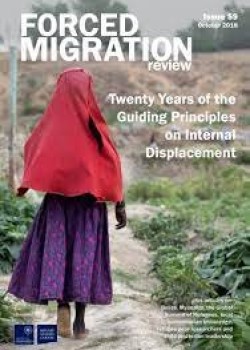
Lanka Monthly Digest (LMD)
Focus On Community Impact (CEPA - Centre for Poverty Analysis)
Publisher: Media Services (Pvt.) Ltd
Place of Publish: Sri Lanka, Colombo
Year: 2012
Series: 12-Aug
Acc. No: 225-J
Category: Journals
Languages: English
This article is about the development sector in Sri Lanka. It explains the correct process of development and how the good and bad results can affect the community. It further suggests that the development projects undertaken by the government should be accelerated in order to provide a better service and create an impact on the society. This article includes the involvement of the private sector in development projects as well.
This article is a publication by the Centre for Poverty Analysis (CEPA) encouraging the private sector to measure the results of its community based development initiatives. Sri Lanka’s private sector largely engages in community development activities as a part of their Corporate Social Responsibility (CSR) projects. Most of them operate efficiently with fixed timelines and budgets, which give physical facilities. However, it has been seen that despite these facilities, there is a lack of advancement of the communities. Building schools haven’t proven to be enough since the number of teachers and other material are often insufficient in both numbers and quality in order to develop the children in these schools. These CSR initiatives need to possibly look at long-term initiatives and goals instead of measuring output on a single factor. Sri Lanka currently faces many development challenges and the pursuit of economic growth has its own set of impacts on society. The private sector has tried to redress some of these difficulties and needs to continue such initiatives to support state involvement.



